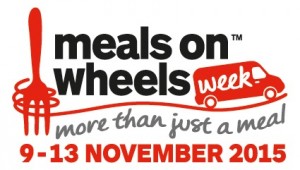The NACC Calls On Industry Support To Save The UK Meals On Wheels Service
 For Meals on Wheels Week 2015 (9-13 November), the National Association of Care Catering (NACC) has launched a UK Government and Parliament petition calling for the Meals on Wheels service to be protected in statutory law.
For Meals on Wheels Week 2015 (9-13 November), the National Association of Care Catering (NACC) has launched a UK Government and Parliament petition calling for the Meals on Wheels service to be protected in statutory law.
The NACC is calling on all foodservice and care industry colleagues to sign the petition and support its campaign to protect the vital community service that is in jeopardy as a result of ongoing Government budget cuts.
Meals on Wheels is a British institution that provides a raft of benefits and a lifeline to some of the country’s most vulnerable citizens but due to its current discretionary status it is a continuous victim of budget cuts.
The Meals on Wheels service enables the elderly and disabled to live independently in their own homes for as long as possible. The essential preventative service keeps individuals nourished and hydrated with a nutritious daily meal (in many cases the only one they will have each day), reducing costly malnutrition-related admissions to hospital. It also provides necessary well-being and safety checks and invaluable regular human contact that eases the devastating isolation and loneliness many elderly endure.
Last year the NACC revealed that over one third of the 212 top tier councils in the UK had stopped providing Meals on Wheels services to local residents, a figure that the NACC now puts at closer to half, and there is grave concern that the service will not survive the forthcoming Government’s Comprehensive Spending Review.
As part of the ongoing Meals on Wheels campaign, Neel Radia, the NACC’s national chair, spoke at the House of Commons, last week, addressing the National Pensioners Parliamentary Rally alongside Kelvin Hopkins MP, and Nick Thomas Symonds MP, the Shadow Pensions Minister. Neel exposed the severity of the threat to the Meals on Wheels service’s existence and the dire consequences its demise will bring. The uproar from the audience wholeheartedly supported the NACC’s message to make the service a statutory responsibility and the aim of the petition is to bring the issue to debate in Parliament.
Neel Radia states: “Removing this vital lifeline for elderly people not only puts more pressure on our hospitals and NHS staff but is also dangerous for those who rely on the service. Maintaining good nutrition and the human contact that comes with this is key to ensuring that our elderly are able to live independently in good health for as long as possible. Cutting this service puts vulnerable, elderly members of the community at risk and will also end up costing the country far more money. The service needs protecting in law.”
The NACC requires 100,000 signatures for the topic to be considered for debate in Parliament and urges all industry colleagues to pledge their support by signing the petition at http://www.thenacc.co.uk/events/Governmentpetition
Meals on Wheels – more than just a meal
Malnutrition and dehydration are both widespread problems among Britain’s growing elderly population, costing the NHS billions of pounds a year. Malnutrition alone cost the country £13bn in 2008 and that cost has risen to more than £19bn this year as stated by the NHS England in their commissioning report. A nutritious meal delivered daily is a key tool in combating these issues, which often lead to hospitalisation among the elderly community. Meals on Wheels delivers nutritionally balanced meals every day to people who might otherwise go without, at less than 2% of the cost of treating somebody in hospital for a day.
In addition, Meals on Wheels provides much needed human contact to people who might otherwise be totally isolated; Age UK states that the number of elderly people affected by social isolation to be around one million. The service doesn’t only combat malnutrition but loneliness as well, boosting mental wellbeing as well as physical health. People who would otherwise need to live in care homes can continue to lead independent lives in their own homes. The service provides dignity for people who might skip meals either because they are struggling financially, lack the strength to prepare meals daily or the mobility to get out to the shops or other food providers.
Despite a rapidly ageing population those receiving a Meals on Wheels service has been in steady decline for the last 7 years (40% since 2009) as councils remove their provision or introduce increasingly stringent eligibility criteria in an effort to save money.
Meals on Wheels is a far cheaper alternative to looking after somebody in hospital and Government cuts are incredibly short-sighted. The average cost of Meals on Wheels per day is £3.55 whereas average cost of a patient staying in hospital for the day is £300, excluding any food, treatment or medicine.





